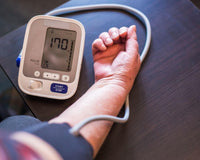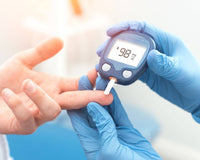What Is Genital Herpes?
Genital herpes is a sexually transmitted infection (STI) that causes sores around the rectum, buttocks, genitals, and thighs. It can be transmitted through vaginal, anal, or oral sex with a virus carrier. In the following article we discuss chlamydia vs genital herpes, genital herpes in women, and genital herpes in men. We answer questions like what causes genital herpes, what does genital herpes look like, and is genital herpes curable?
What Is Genital Herpes?
Genital herpes is a sexually transmitted infection that can cause sores around the rectum and on the buttocks, genitals, and thighs. Genital herpes can be spread through vaginal, anal, or oral sex with someone who carries the virus. The World Health Organization (WHO) estimates that in 2016, about half the global population was infected with genital herpes.
Genital Herpes Vs Warts
Genital warts and genital herpes may appear in the same areas of the body, but they are somewhat different. Genital warts are typically the color of your skin, while genital herpes may look like blisters or ulcers and may burst to leave a red sore
What Causes Genital Herpes?
Genital herpes is caused by infection from the herpes simplex virus. The virus is primarily spread through sexual contact. After initial infection, genital herpes may lie dormant in the cells of the body for months of years. It can reactivate and flare up several times a year, or show no noticeable side effects.
Genital Herpes vs Chlamydia
Genital herpes are often mistaken for chlamydia, the most common sexually transmitted disease. There are, however, significant differences between the two that should be considered.
Chlamydia is caused by a bacterial infection, whereas genital herpes is caused by infection from the herpes-simplex virus. As is the case with herpes, most people who contract chlamydia do not show any noticeable symptoms for a significant amount of time. If symptoms do appear, they usually only show 1-3 months after infection.
One major difference between genital herpes and chlamydia is the variation in treatment options. Genital herpes can be treated, but not cured, through antiviral treatments and drugs like valacyclovir and famciclovir. On the other hand, chlamydia can easily be cured by taking a course of antibiotics prescribed by a medical professional.
What Does Genital Herpes Look Like?
An outbreak of genital herpes often results in the appearance of clusters of fluid-filled blisters around the genital area and inner thighs. The blisters may vary in size and turn into sores that may bleed or ooze a white fluid. The first outbreak of genital herpes is often the most painful. Future outbreaks, if they occur, are often shorter and less painful.
As an outbreak of genital herpes begins to heal and comes to an end, the sores will scab over and disappear. Sores from genital herpes usually take a week or more to heal.
Genital Herpes In Women
In women, the herpes-simplex virus can enter the body through contact with the lining of the mouth, the labia, the vagina, or small cuts in the skin. For women, the first outbreak usually occurs two weeks after contracting the virus from an infectious person. In women genital herpes can cause the following side effects and symptoms:
- Itching or burning in the vaginal area
- Pain in the legs, buttocks, or vaginal area
- A change in vaginal discharge
- Headache
- Painful urination
Genital Herpes In Men
In men, the herpes-simplex virus that causes genital herpes can enter the body through contact with the lining of the mouth, the genital area, the tip of the penis, or small cuts in the skin. The most common symptom of genital herpes for men is the appearance of clusters of sores around the penis and anus. Other symptoms include the following:
- Itching or burning around the genital area
- Pain in the genitals
- Flu-like symptoms, such as body aches and fever
- Swollen lymph nodes in the groin area
Is Genital Herpes Curable?
There is no cure for genital herpes. However, there are medications and treatment options that can prevent or shorten future outbreaks. Once someone has been infected with the herpes-simplex virus they will carry it for the rest of their life. Symptoms and side effects of infection may flare up occasionally, or the virus may lay dormant for a person’s entire life.
How is Genital Herpes Diagnosed?
Genital herpes can be diagnosed by a medical professional using one or multiple of the following three tests: cell culture, PCR test, and blood test. Genital herpes can be mistaken for ingrown hairs, irritation of the skin, or another sexually-transmitted disease such as genital warts. It is important to be tested and diagnosed for genital herpes by a licensed doctor.
Genital Herpes Treatment
There is no known cure for genital herpes. However, daily use of antiviral medicines can help improve symptoms and reduce future outbreaks. Valacyclovir, acyclovir, and famciclovir are commonly available medications that can be used to treat cold sores caused by genital herpes.
What Is Genital Herpes?: Summary
Genital herpes is a sexually transmitted infection that can lead to the appearance of cold sores around the rectum, genital area, and thighs. It is caused by infection from the herpes simplex virus.
Genital herpes can be diagnosed by a medical professional through the use of one or multiple tests. Prescription medications like valacyclovir can help mitigate symptoms of genital herpes.








